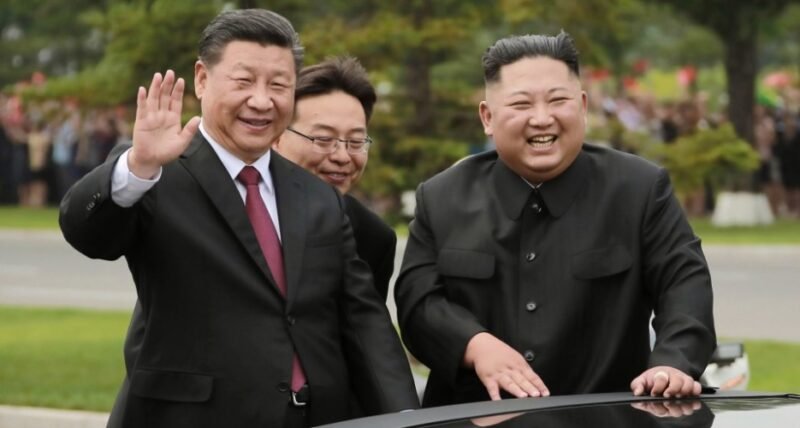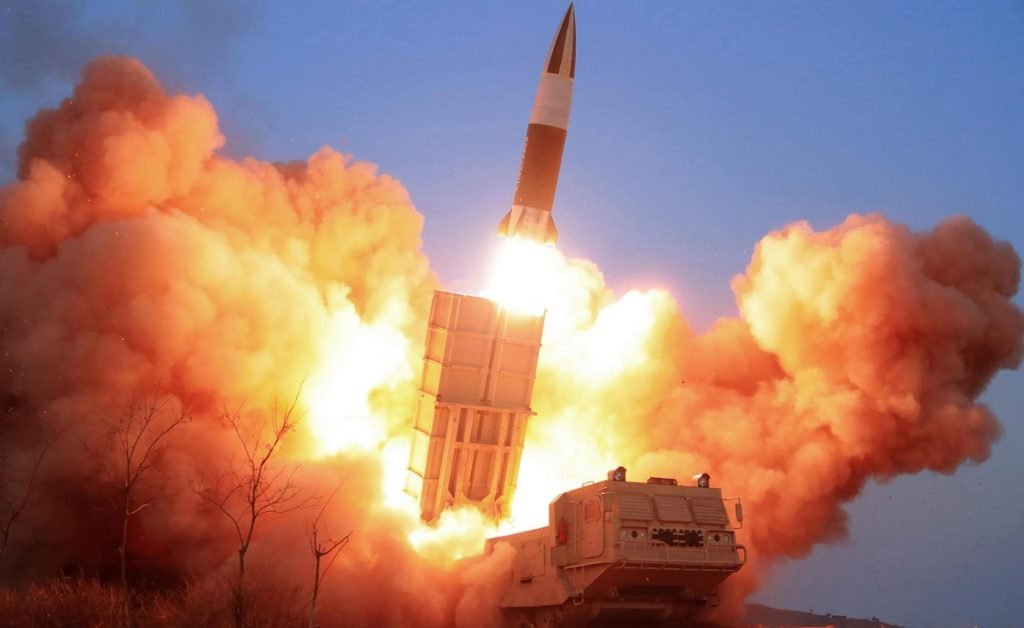China’s Role as Mediator in North Korean Provocation

On July 4, 2017, the world witnessed the first successful test of an intercontinental missile (ICBM) made by North Korea. This kind of missile is capable of travelling a distance of more than 5,000 km, enough to hit Alaska and some northeastern states of the United States. This test was unanimously condemned by the international community, including China, one of North Korea’s strongest allies. Measures will now intensify in an attempt to contain North Korea’s growing threat.
This escalation shows that international sanctions have failed to curb North Korea’s military ambitions. This should not be the case, however, when one considers that a United Nations report reveals that nearly 80% of North Koreans live in poverty, without access to healthcare and without enough to eat. The question should not be how or why North Korea is producing missiles capable of threatening U.S. allied states, but rather how the Kim Jong-un regime manages to survive with such economic incapacity.
The answer is that the North Korean government does not need the economy to survive. It controls the lives of its citizens in an authoritarian manner. It has used brutal measures to maintain its position in power, including torture, public executions, and the use of starvation as a weapon against its own people. At the same time, the government has subsidized its nuclear development program, which is essential to the regime. This gives North Korea the power and independence to continue to defy the rest of the world without fear of retribution.
The danger in all of this is that if the international community is unable to provide a real solution to North Korea’s missile crisis, it could lead to nuclear war. The United States is aware of the Korean enemy and is prepared to act if pushed to the limit. But it is important not to act too quickly, as it could jeopardize the lives of millions.
A cautionary tale for the international community may be the position of China, which has traditionally been a close ally of North Korea but which has shown recent signs of refusing to be involved in North Korea’s nuclear program. China has made it clear that it will not condone North Korea’s missile tests. The U.S. has warned North Korea not to push China too far, as this could cause long-term damage to China-North Korea political relations.
In these difficult times when the nuclear threat is a growing trend, global unity is the only weapon that will work. Any fracture will lead to a nuclear war, which no one wants.

Could China become the next intermediary in the inter-Korean conflict?
The world has witnessed the diplomatic tensions that North Korea has created for years and the threat that North Korean intercontinental missiles pose to the United States, Japan, and the rest of the Asia-Pacific region. However, China’s sphere of influence and power over its North Korean neighbour could play a key role in resolving this conflict.
China, which has been North Korea’s main ally since the Korean War, is also its main supplier of strategic commodities and materials. However, North Korea’s recent nuclear attacks have resulted in economic sanctions from the international community, forcing China to reduce its trade with North Korea. This predicament could be an opportunity for China to intervene to defuse the conflict by acting as a go-between.
China’s objective could be to persuade North Korea to come to the negotiating table. China could make a tempting offer to North Korea: consider ending its provocative nuclear policy in exchange for increased economic cooperation with other powers in the region. This would not only help maintain regional stability but would also serve the interests of China.
The United States, for its part, would approach the North Korean nuclear crisis with a combination of military, economic, and diplomatic pressure on North Korea. While China has expressed concern about North Korea’s military ambitions, it also remains concerned about regional stability, and
U.S. readiness to intervene decisively in the conflict could represent a first step toward further escalation.
Another consideration is the historical relationship between the two countries and their economic interconnectedness. If the situation deteriorates further, China could face a greater threat than a military conflict on its border: a growing number of refugees from North Korea, a humanitarian crisis and serious instability in the region.
It is therefore in China’s interest to mediate the inter-Korean conflict. This could involve changing its policy toward North Korea and encouraging a more open economic policy. A peaceful resolution of this conflict not only represents an opportunity for China to expand its influence in the region but would also make the world more secure and stable. Ultimately, how China handles this situation will have long-term implications for regional and international stability.
China following the different meetings and provocations of North Korea, taking into account the war of influence with the USA could once again compete with the United States on an international node.


















